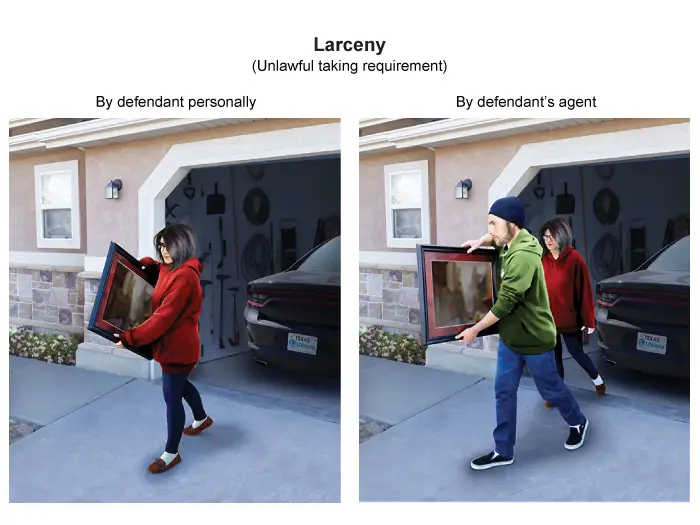
The Delaware Bar Exam is one of the few bar exams that has not adopted the format of the National Conference of Bar Examiners' (NCBE® ) Uniform Bar Examination (UBE®). However, The Supreme Court of Delaware has adopted two UBE components—the Multistate Bar Examination (MBE®) and the Multistate Performance Test (MPT®). Its third component consists of eight essay questions on Delaware-specific law.
This article details everything you need to know about this uniquely difficult bar exam. Read on to learn about the Delaware Bar Exam's pass rates, application deadlines, eligibility requirements, reciprocity, score transfer, fees, subjects, format, and more.
The Delaware Bar Exam used to be administered over 2-and-a-half days only once a year. However, in February 2023, the Delaware Supreme Court announced that the bar exam would now be a 2-day exam administered biannually in February and July. The exam schedule is as follows:
| Time | Morning Session (9:30 am - 12:30 pm) | Afternoon Session (2:00 pm - 5:00 pm) |
|---|---|---|
| Tuesday | 4 Delaware Essay Questions | 2 MPT Tasks |
| Wednesday | 100 MBE questions | 100 MBE questions |
The Delaware-specific essay component consists of four questions covering 10 possible subjects. The Delaware Board of Bar Examiners posts essay questions from previous exams on their website between March and May every year. July 2023 essay questions have already been released.
The MPT is administered over one 3-hour afternoon session on the first day of the exam. Examinees must complete simulated lawyering tasks using faux case files and a folder containing various legal documents.
The MBE comprises half of the total weight of the Delaware Bar Exam. Examinees will have two 3-hour sessions on the second day of the exam to answer a total of 200 multiple-choice questions.
Master the hardest questions on the MBE with in-depth answer explanations that include innovative visual aids.

There are two filing periods for applying to the Delaware Bar Exam. It’s highly recommended that you gather all required documents and submit your application before the early filing deadline to avoid a $200 late filing fee. See below for details regarding deadlines and filing periods.
All forms must be filed electronically with the Board by May 2 or December 5 for the July and February exams, respectively. Filing deadlines for attorneys and first time test takers are the same, but attorneys are subject to higher fees.
| Filing Deadlines | February 2024 | July 2024 | First Time Fee | Attorney Fee |
|---|---|---|---|---|
| Early Filing | November 7 | April 2 | $700 | $800 |
| Final Filing | December 5 | May 7 | $900 | $1,000 |
Delaware Bar Exam applicants must select a preceptor. Preceptors are responsible for helping applicants meet educational and professional requirements. This requirement is unique to Delaware. Preceptors must have been admitted to the Bar of the Supreme Court for a minimum of 10 years leading up to their designation as a preceptor (see Rule 10 for details). Any qualified Delaware lawyer can be a preceptor, and many applicants choose lawyers they have become familiar with through clerkships, internships, and/or work experience.
You can also search for a preceptor through the Preceptor Bank on the Board's website. The Board recommends that you find a preceptor early in the application process. Preceptors must be chosen no later than September 1 or April 1 for the February and July exams, respectively. Preceptors are responsible for reviewing your application and accomplishing the following objectives:
Furthermore, applicants to the Delaware Bar Exam must have graduated from a law school accredited by the American Bar Association (ABA) and have obtained a baccalaureate degree from an accredited college or university.
To make your exam appointment, you must electronically file your application with the Board no later than the final filing deadline for your test administration with all required documents and fees. While this is the typical scheduling process for bar exams across the country, Delaware requires applicants to select a preceptor who will review their application for completeness and mentor the applicant.
Exclusive access to dozens of practice questions from recent bar exams. Themis essay grader looking at a Themis student’s MEE answer." width="700" height="525" />
Themis essay grader looking at a Themis student’s MEE answer." width="700" height="525" />
Delaware has different bar exam application submission fees for attorneys admitted to practice in another jurisdiction and first-time applicants. Individuals who file after early filing must pay an additional $200 application fee. See the table below for all Delaware Bar Exam costs and fees.
| Application Fees | |
| First Time Applicants | $700 |
| Re-Applicants | $700 |
| Attorney | $800 |
| Late Fees | |
| First Time Applicants | $900 |
| Re-Applicants | $800 |
| Attorney | $1,000 |
| Other Application Fees | |
| Background Check (State/Federal) | $65 |
| Laptop Fee | $100 |
| Other Licenses and Registrations | |
| Foreign Legal Consultant | $1,000 |
| Corporate Counsel Not Admitted In-State | $100 |
| Legal Service Lawyer | $90-$150 |
| Military Spouse Temporary Practice | $100 |
| Foreign Legal Consultant | $1,000 |
Application fees are non-refundable and must be paid in full during the online application process. Certified checks or money orders are only accepted if specifically authorized by the Board's Executive Director.
Applying for the Delaware Bar Exam can be extremely expensive, especially if you file your application late. Fortunately, there are many cost-saving options available to qualifying individuals. For example, the Delaware State Bar Association Multicultural Judges & Lawyers Section awards its Alford Excellence Award ($3,000) to at least three individuals who intend to sit for the July exam—one for excellence, one for leadership, and one for community service.
The Delaware Law School Endowed Scholarships has published a list of opportunities available to a broader range of candidates. You can also browse the AccessLex Institute Law School Scholarship Databank.
The DE bar exam tests an examinee's ability to analyze and reason alongside their knowledge and understanding of fundamental legal principles. Delaware has adopted two components of the UBE—the MBE and MPT. While the MPT consists of 2 simulated lawyering tasks, the MBE tests 7 subjects, many of which are also found among the 10 (previously fourteen) testable essay subjects. Read on for a detailed breakdown of each exam component.
The essay portion of the Delaware Bar Exam is administered over 3 hours on the first day of the exam and is the only component that does not follow the UBE format. However, much like the UBE's Multistate Essay Exam (MEE®), the Delaware essay exam pulls its questions from a number of possible subjects, meaning that you won't be tested on every subject, but you should be prepared for each. The 10 possible subjects are:
The MBE is administered in two 3-hour sessions on the second day of the Delaware Bar Exam. It is scored on a 200-point scale and presents candidates with 200 multiple-choice questions. Remember, there are 25 unscored pilot questions for future exams. The remaining 175 questions are divided evenly among the following seven MBE subjects:
The MPT is administered over 3 hours on the first day of the Delaware Bar Exam. This component consists of closed-universe practical questions with instructions, factual data, cases, statutes, and other reference material supplied by examiners. Candidates will answer two cases presenting simulated real-life scenarios to demonstrate their lawyering skills, using only the materials provided by the bar examiners. Each case is assessed on a 6-point scale, with a 6 being the highest possible score and a 0 being the lowest possible score.
Need more proof? We are the only bar review course that publishes our pass rates every year.
Delaware requires the highest minimum passing score (143) to pass the bar exam of any jurisdiction in the US. Note that the 143 minimum passing score is a scaled score computed from your raw score. Scaled scoring is designed to ensure fairness across exam versions. For example, if exam version A is more difficult than exam version B, exam version B scores will be calibrated to account for the discrepancy. The written component of the exam (MPT/Essay portion) is scaled to the MBE before the scores are combined into a scaled score based on a 200-point scale. Each component is worth 50% of the total scaled score.
The Multistate Professional Responsibility Examination (MPRE®) features 60 multiple-choice questions administered over two hours. Before you can practice law in Delaware, you must pass the MPRE with a minimum score of 85. This score must be earned within four years preceding or one year following the year you pass the Delaware Bar Examination. Check out our article, About the MPRE, to learn more about the mandatory exam.
Below are the pass rates for the July 2023 Delaware Bar Exam. Recall that Delaware has not historically administered a February exam like most jurisdictions. You'll notice that the repeater pass rate is markedly lower than the first-timer pass rate. This phenomenon is typical with bar exams across the country and is likely due to the fact that many examinees who failed the first time haven't significantly changed their study habits.
| Overall Pass Rate | First-Timer Pass Rate | Repeater Pass Rate | Results Release Date |
|---|---|---|---|
| 63.7% | 68.3% | 53.2% | October 5 |
Below are the annual pass rates for the DE Bar Exam since 2017, divided into first-time examinees and repeaters. Due to pandemic-related externalities, Delaware did not administer a bar exam in 2020.
Graph View Table View Graph View Table View| Exam | First Timers | Repeaters | Overall | |||
|---|---|---|---|---|---|---|
| Year | No Of Candidates | Pass Rate | No Of Candidates | Pass Rate | No Of Candidates | Pass Rate |
| 2023 | 183 | 68.3% | 79 | 53.2% | 262 | 63.7% |
| 2022 | 181 | 64.1% | 78 | 26.9% | 259 | 52.9% |
| 2021 | 351 | 71% | 65 | 42% | 416 | 67% |
| 2020 | – | – | – | – | – | – |
| 2019 | 156 | 61% | 57 | 28% | 213 | 52% |
| 2018 | 128 | 68% | 44 | 39% | 172 | 60% |
| 2017 | 158 | 76% | 55 | 47% | 213 | 69% |
Delaware releases exam results 9 to 11 weeks following administration of its bar exam. For reference, July 2023 exam results were released on October 6 of the same year. Past bar results can also be found on the Board's website.
The Delaware Bar Exam has a reputation for being exceptionally difficult and unique. However, the state offers plenty of opportunities for up-and-coming lawyers. Over half of all publicly traded companies and 66% of Fortune 500 companies in the US are incorporated in Delaware. The state is popular with businesses because it has a reputation as a tax-shelter for corporations and for having a legislature that is exceptionally accommodating to business issues. These factors make Delaware an excellent choice for future lawyers interested in practicing corporate law and IP litigation.
Furthermore, there are diversity programs designed to aid law students and junior attorneys in their legal careers. For example, the Leadership Council on Legal Diversity (LCLD) offers a 1L Scholars Program and a Pathfinder Program for attorneys just starting their careers. Law students can also benefit from the Delaware Diversity Job Fair and practicing judges and lawyers from the Delaware State Bar Association's Multi-Cultural Judges and Lawyers Section practitioners.
The Delaware Bar Exam is one of the most unique in the country. Its minimum passing score of 143 is the highest of any jurisdiction and is one of only eleven remaining jurisdictions to have not adopted the UBE format. What's more, the Supreme Court of Delaware requires bar exam candidates to undergo a 12 week clerkship and select a preceptor to review their exam application and mentor them during their clerkship.
If you have any questions, you can contact the Delaware State Bar using the information below.
| State Bar of Delaware Contact Information | |
|---|---|
| Medium | Info |
| Phone | (302) 651-3935 |
| Fax | (302) 651-3935 |
| [email protected] | |
| Address | Board of Bar Examiners of the Supreme Court of Delaware The Renaissance Centre 405 North King Street, Suite 500 Wilmington, DE 19801 |